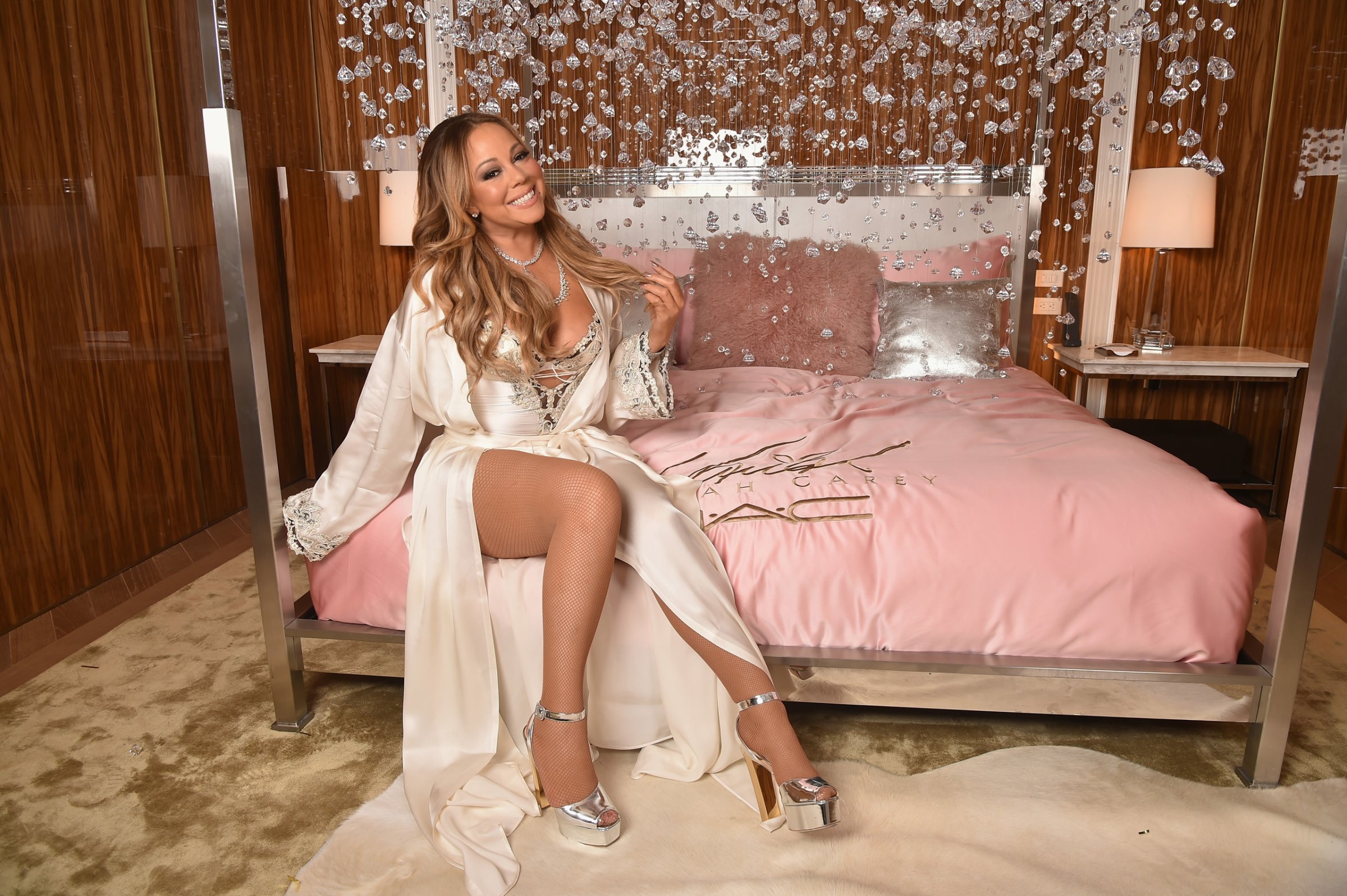
There’d seem to be no star more perfect for reality TV than Mariah Carey, whose Mariah’s World began Sunday on E! These days, the singer’s art can’t be contained by music—it’s grown to encompass her personal life. Carey, who rose to the music industry’s highest echelon early in her career with emotive but remote ballads like “Vision of Love” and “I Don’t Wanna Cry,” has spent decades working on a different sort of emotional connection, using endless media appearances to advance her image as an obsessively controlling, luxury-addled diva who’s totally in on the joke. Her last album title—Me. I Am Mariah… The Elusive Chanteuse—managed to squeeze in three references to herself, something only possible both for a musician for whom the music is no longer the only objective and a person for whom self-obsession is a giddy bit. It’s a brilliant act—refracting decades’ worth of received wisdom about female celebrities through a gimlet eye.
And yet, under the glare of a reality camera, Carey’s joy disappears. The stars who’ve succeeded in the genre understand its deglamourizing potential; to really do well on reality TV, one needs to be willing to seem mundane and gross. Kim Kardashian, for instance, may wear couture on the red carpet, but she spends her time on E! discussing minor medical procedures and petty dramas with her sisters. Bethenny Frankel’s business success is thanks to her willingness to bicker with various Upper East Side doyennes on The Real Housewives of New York City—not despite it. And President-elect Donald Trump’s time on The Apprentice bolstered his image as a business titan, but only because he was willing to dig into feuds between aspirants and give degrading product-placed shoutouts to everyone from Omaha Steaks to Australian Gold suntan lotion.
Carey is unwilling to cede control of her carefully-wrought image to the show’s producers; as a result, she’s a spectral presence on her own show. (James Packer, her fiancé at the time of filming, is even more absent.) It’s startling to see Carey, usually volubly chatty, weighing her words so carefully in the confessional and draining them of their typical backspin of askew wit. The show’s most revealing moment may be when she begs a cameraman to stop recording before a dance rehearsal in which dancers will lift her; she’s scared, she says, though she doesn’t make mention of her decades-long history of performing. That history makes it unlikely that she’ll foul up the rehearsal in some meaningful way—it also makes the toll of having an embarrassment caught on video and aired on TV all the higher. The more outsized your persona, the more you have to lose by puncturing it.
Anyone looking for information about Carey would be well-advised to look elsewhere, like her rightfully legendary 2002 episode of MTV Cribs, in which she shows off her palatial Manhattan digs with a wry awareness of just how extreme her tastes are. From Mariah’s World, a more closed-off star reveals only the barest details, like her love for her children and her frustration when things aren’t done the right way. In a scene in which the singer does not herself appear, an assistant frantically tries to wire an AppleTV because Carey can only sleep through the night with the device connected. Watching a dejected personal assistant sort through coaxial cables—the mundanest and pettiest of duties—made me feel bad for the assistant, and, honestly, for Carey. The singer’s whole game has been to make us think she demands champagne and cut flowers in every room she enters; even without her there, her show is committed to revealing just how human-sized her needs really are.
It’s hard to know why Carey decided to take part in a project so incongruous with her interests and with her way of being in public. But there’s only one moment on the show so far in which Carey seemed remotely at home—when she, in the show’s opening, played the character of “Bianca,” a dark-haired, British-accented alter ego Carey played in the video for her 1999 song “Heartbreaker.” The subtext of the character Carey’s spent her recent career playing—that she’s sustained by memories of past glories—is brought to the surface, and in the glummest possible way. After all, Carey’s not just looking back to a hit song; she’s reliving an era in which her forward-facing obligations were just a cute bit in a music video, not 24/7 on-camera time. The most interesting thing about “Mariah’s world” has always been how removed from our own it was. Bringing it down to earth feels like a cruel pop-culture version of iconoclasm.
More Must-Reads from TIME
- Introducing the 2024 TIME100 Next
- The Reinvention of J.D. Vance
- How to Survive Election Season Without Losing Your Mind
- Welcome to the Golden Age of Scams
- Did the Pandemic Break Our Brains?
- The Many Lives of Jack Antonoff
- 33 True Crime Documentaries That Shaped the Genre
- Why Gut Health Issues Are More Common in Women
Contact us at letters@time.com